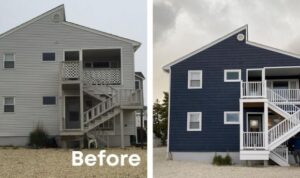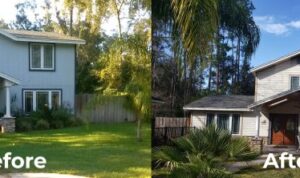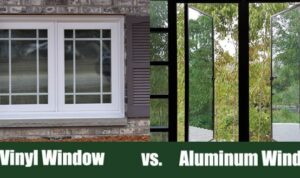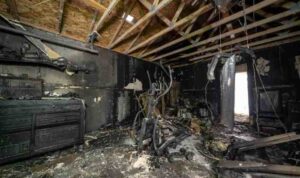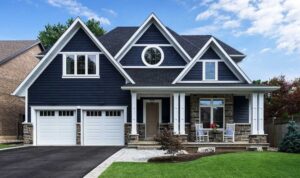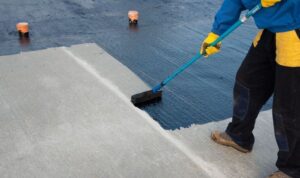Exploring the realm of security camera installation near me, this introduction sets the stage for a detailed and informative discussion, engaging readers right from the start.
Providing insights and key information about different aspects of security camera installation, this paragraph aims to captivate readers' interest and curiosity.
Importance of Security Cameras

Security cameras play a crucial role in ensuring the safety and security of homes, businesses, and public spaces. By having security cameras installed, individuals can monitor and record activities in and around their properties, providing valuable evidence in case of any incidents.
Deter Crime
According to studies, the presence of security cameras can act as a deterrent to criminal activities. Criminals are less likely to commit crimes when they know they are being watched and recorded. In fact, research has shown that properties with visible security cameras are less likely to be targeted by burglars or vandals.
Types of Security Cameras
When it comes to security cameras, there are several types available, each with unique features and benefits that cater to different security needs.
Dome Cameras
Dome cameras are a popular choice for indoor security surveillance. They are discreet and blend well with the surroundings, making it difficult for intruders to spot them. Dome cameras also have a wide viewing angle, providing comprehensive coverage of the area.
Additionally, they are vandal-resistant, making them a durable option for indoor security.
Bullet Cameras
Bullet cameras are commonly used for outdoor surveillance due to their long-range capabilities. They are designed to be weatherproof and can withstand harsh weather conditions. Bullet cameras have a more visible presence compared to dome cameras, serving as a deterrent to potential intruders.
They are also easy to install and typically come with infrared technology for night vision.
PTZ Cameras
PTZ (Pan-Tilt-Zoom) cameras offer flexibility in monitoring as they can pan, tilt, and zoom to capture different angles and views. They are ideal for larger areas that require active monitoring. PTZ cameras can be controlled remotely, allowing users to adjust the camera's position as needed.
They are equipped with advanced features like motion tracking and image stabilization for enhanced security.
Factors to Consider Before Installation
Before installing security cameras, there are several important factors to consider to ensure optimal performance and effectiveness.
Location
- Choose strategic locations that provide maximum coverage of the area you want to monitor.
- Avoid placing cameras in areas with direct sunlight or glare, as it can affect the image quality.
- Ensure cameras are placed out of reach to prevent tampering or vandalism.
Coverage Area
- Determine the specific areas you want to monitor and ensure the cameras have the appropriate range and field of view.
- Consider the height at which the cameras are installed to capture clear and comprehensive footage.
Connectivity
- Ensure there is a reliable power source nearby for wired cameras or a strong Wi-Fi signal for wireless cameras.
- Check the compatibility of the cameras with your existing security system or software for seamless integration.
Weatherproofing
- Choose weatherproof cameras if they will be installed outdoors to withstand exposure to elements like rain, snow, or extreme temperatures.
- Consider additional protective housing or enclosures for cameras in harsh weather conditions.
Professional Installation vs. DIY Installation

When it comes to installing security cameras, one of the key decisions you'll need to make is whether to opt for professional installation or go the DIY route. Both options have their own set of benefits and drawbacks, so it's essential to weigh them carefully before making a decision.
Benefits of Professional Installation
- Expertise: Professional installers have the knowledge and experience to ensure that your security cameras are installed correctly and effectively.
- Time-saving: Hiring professionals can save you time and hassle, as they can complete the installation process efficiently.
- Customization: Professionals can assess your specific security needs and recommend the best placement and setup for your cameras.
- Warranty: Many professional installation services offer warranties or guarantees for their work, providing added peace of mind.
Benefits of DIY Installation
- Cost-effective: DIY installation can save you money, as you won't have to pay for professional labor.
- Flexibility: You can choose when and how to install the cameras, without being dependent on a professional's schedule.
- Learning experience: Installing cameras yourself can be a valuable learning opportunity, allowing you to become more familiar with your security system.
When to Hire a Professional
If you have a complex security system, lack technical knowledge, or simply prefer to have a professional handle the installation, it's advisable to hire a professional installer. Additionally, if you want to ensure that your cameras are set up correctly and optimized for maximum effectiveness, professional installation may be the best choice.
Finding a Reliable Security Camera Installer
When it comes to installing security cameras, finding a reputable installer is crucial for ensuring the job is done correctly and efficiently. Here are some tips on how to find a reliable security camera installation service near you.
Check Reviews, Certifications, and Experience
Before hiring a security camera installer, it is important to check their reviews, certifications, and experience. Reviews from previous customers can give you insight into the quality of their work and customer service. Look for installers with positive feedback and high ratings.Certifications are also important as they indicate that the installer has received proper training and meets industry standards.
Make sure the installer is certified by relevant organizations or manufacturers of security camera systems.Experience is another key factor to consider. An installer with years of experience is likely to have the knowledge and skills needed to handle various installation challenges effectively.
Look for installers who have a proven track record of successful installations.By checking reviews, certifications, and experience, you can find a reliable security camera installer who will ensure your system is installed correctly and functions optimally to enhance the security of your property.
Cost of Installation
When it comes to security camera installation, the cost can vary depending on several factors. Let's break down the typical costs associated with installing security cameras and explore what factors can affect the overall cost.
Number of Cameras
The number of cameras you need will directly impact the cost of installation. Generally, the more cameras you have, the higher the installation cost will be. Each additional camera requires more time and labor for installation, which can increase the overall price.
Additional Features
If you opt for security cameras with advanced features such as night vision, motion detection, or remote viewing capabilities, the cost of installation may go up. These additional features often require more complex installation processes, leading to higher costs.
Installation Complexity
The complexity of the installation can also affect the overall cost. For example, if your property has challenging terrain or requires extensive wiring, the installation process may be more labor-intensive and time-consuming, resulting in higher installation costs.
Professional Installation vs. DIY Installation
While opting for professional installation may come with a higher upfront cost, it can save you time and ensure that your security cameras are installed correctly. On the other hand, DIY installation may be more cost-effective but can be challenging for those without experience, potentially leading to additional costs if mistakes are made.
Finding a Reliable Security Camera Installer
When looking for a security camera installer, it's essential to consider their pricing structure and compare quotes from different providers. Remember that the cost of installation should not be the only factor in your decision – be sure to choose a reliable installer with a good track record.
Maintenance and Troubleshooting
After the installation of security cameras, it is essential to perform regular maintenance to ensure they function optimally. Additionally, knowing how to troubleshoot common issues can help in maintaining the security system's effectiveness.
Maintenance Tips
- Regularly clean the camera lenses to prevent dirt and debris from affecting the image quality.
- Check for any loose connections or cables and secure them properly.
- Inspect the camera housing for any damage and replace if necessary.
- Ensure that the cameras are positioned correctly for maximum coverage and visibility.
Troubleshooting Common Issues
- Blurred or Fuzzy Images:This could be due to a dirty lens. Clean the lens with a soft, lint-free cloth.
- No Video Feed:Check the power source and connections to ensure the camera is receiving power.
- Interference or Glare:Adjust the angle of the camera to avoid direct sunlight or bright lights causing glare.
- Recording Errors:Make sure there is enough storage space on the recording device and that it is functioning correctly.
Closing Summary

In conclusion, this guide has shed light on the nuances of security camera installation near me, offering valuable insights and considerations for those looking to enhance their security measures.
Top FAQs
What are the key benefits of security cameras?
Security cameras provide a sense of security, deter crime, and offer surveillance footage for investigations.
How do I choose the right location for security camera installation?
Consider high-traffic areas, entry points, and blind spots for optimal coverage.
Is professional installation worth the cost?
Professional installation ensures proper setup and positioning for maximum effectiveness.
What maintenance tasks are essential for security cameras?
Regular cleaning, checking for connectivity issues, and updating software are crucial for maintenance.

